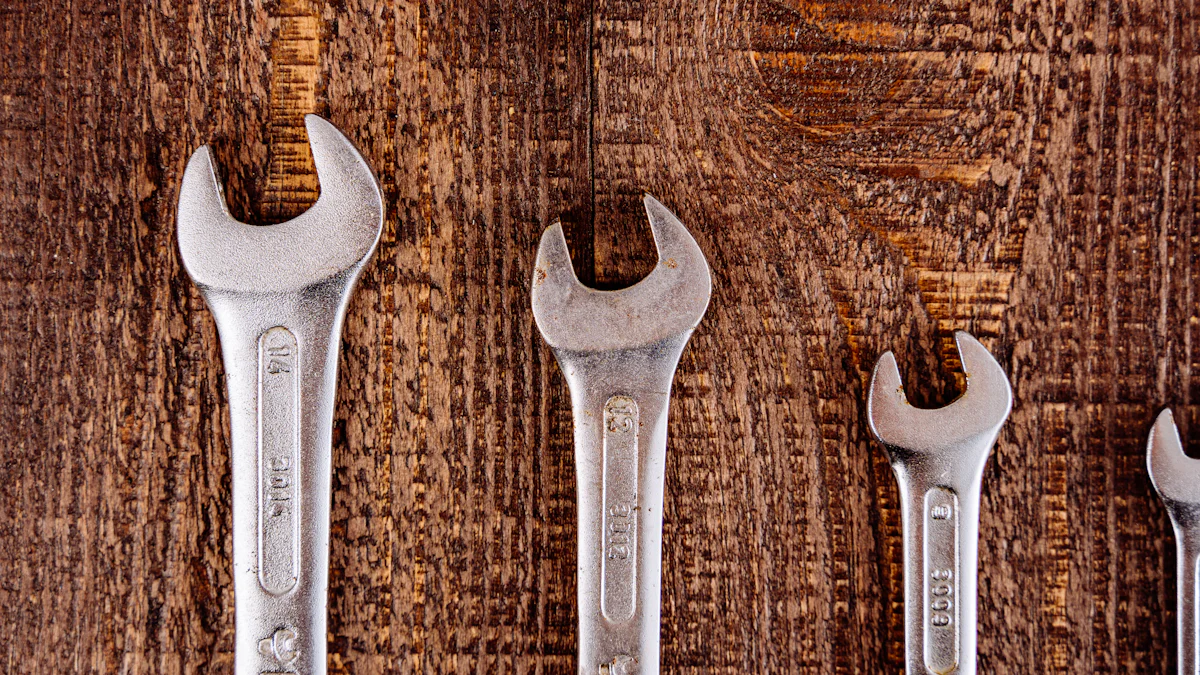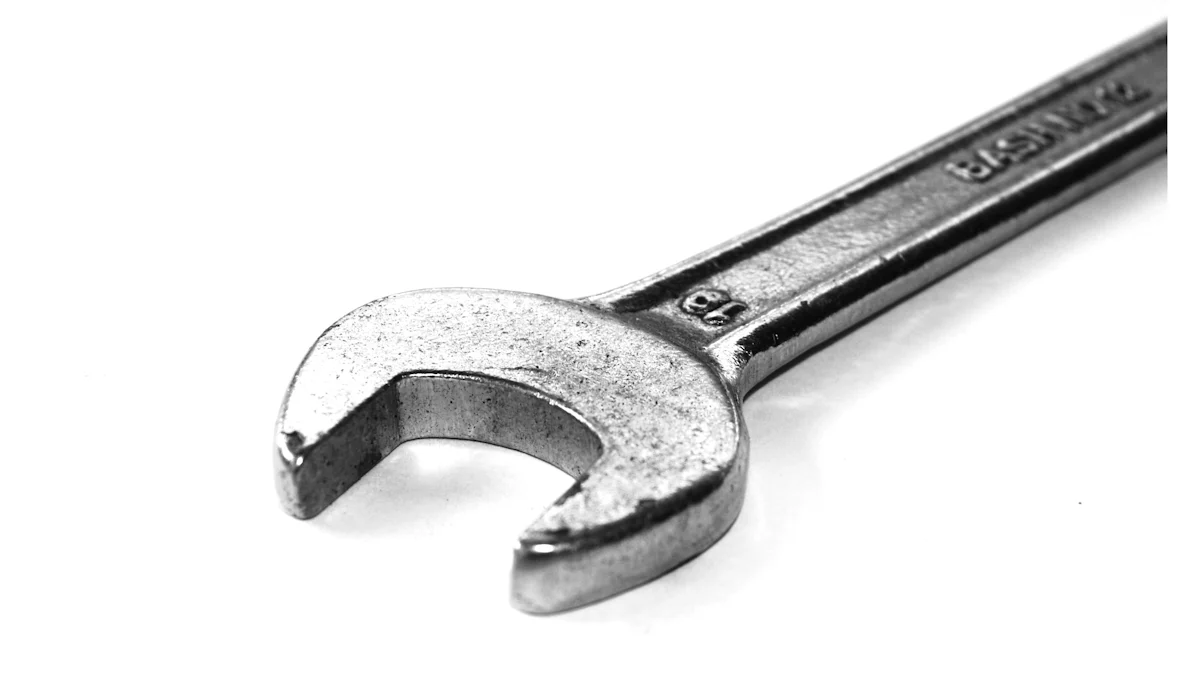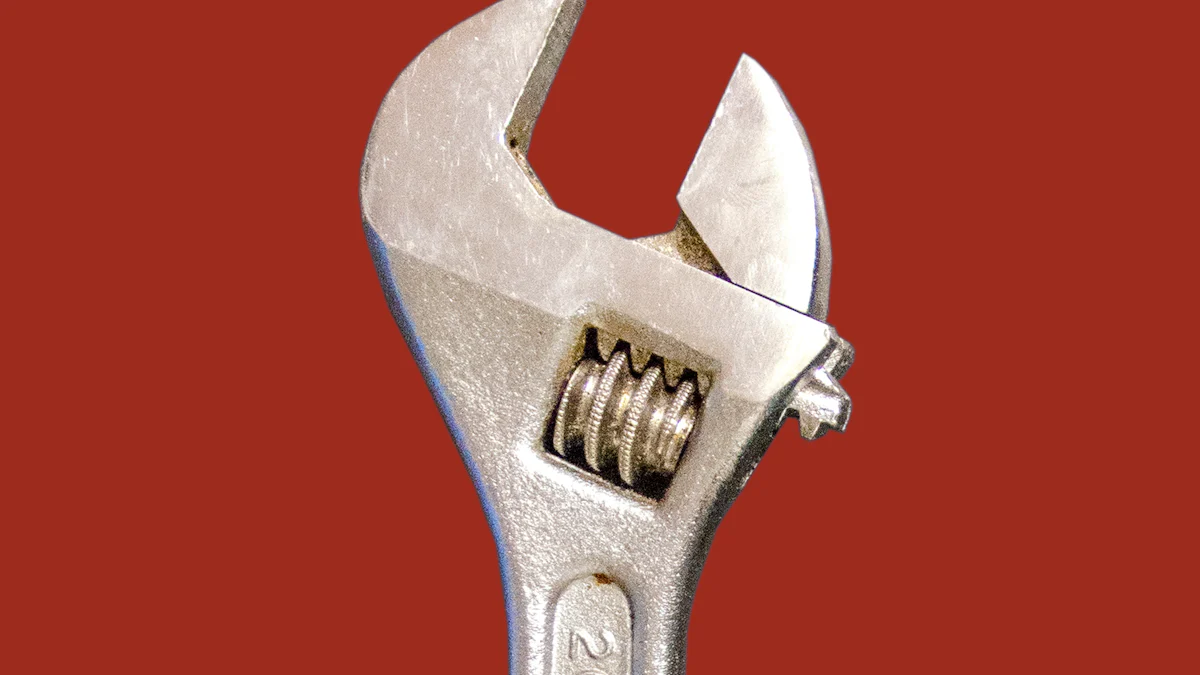
A wrench spanner is a versatile tool designed to grip and turn nuts or bolts with pins or tabs around their circumference. Understanding the various applications of spanner wrenches is crucial for both professionals and DIY enthusiasts. These tools provide a mechanical advantage, making it easier to tighten or loosen fasteners efficiently. Spanner wrenches are invaluable in industries such as automotive repair, manufacturing, construction, and maintenance. Mastering the use of spanner wrenches enhances the ability to tackle various mechanical tasks with greater efficiency.
What is a Spanner Wrench?

Definition and Basic Concept
A wrench spanner is a tool designed to provide grip and mechanical advantage in turning rotary fasteners. These fasteners include nuts and bolts. The tool’s design allows for efficient tightening or loosening of these components.
Historical Background
The origins of the wrench spanner can be traced back to its initial purpose. Early versions provided a grip for fasteners containing pins or tabs around their circumference. Over time, the tool evolved to meet the changing needs of various industries. This evolution led to advancements in design and functionality.
Key Features
Key features of a wrench spanner include its ability to grip and turn fasteners securely. The tool often has adjustable components to fit different sizes of nuts and bolts. Materials used in construction typically include high-strength steel or other durable metals. This ensures longevity and reliability in various applications.
Types of Spanner Wrenches
Several types of wrench spanners exist, each suited for specific tasks. Understanding these types helps users select the right tool for their needs.
Hook Spanner Wrenches
Hook spanner wrenches feature a hook-shaped end. This design allows the tool to engage with notches or slots on the fastener. Common uses include adjusting collars, locknuts, and other round objects.
Pin Spanner Wrenches
Pin spanner wrenches have pins that fit into corresponding holes on the fastener. This type provides a secure grip, making it ideal for tasks requiring precision. Applications often include machinery maintenance and repair.
Adjustable Spanner Wrenches
Adjustable spanner wrenches offer versatility. The tool’s adjustable jaw can fit various sizes of nuts and bolts. This makes it a popular choice for both professional and DIY use.
Specialized Spanner Wrenches
Specialized spanner wrenches cater to unique tasks. Examples include wrenches designed for specific automotive or industrial applications. These tools often feature custom shapes or sizes to meet particular requirements.
Applications of Spanner Wrenches

Industrial Applications
Machinery Maintenance
Machinery maintenance often requires the use of a wrench spanner. This tool provides a secure grip on fasteners, ensuring precise torque application. Regular maintenance tasks, such as tightening bolts and nuts, benefit from the reliability of a wrench spanner. The ability to adjust the tool to fit various sizes of fasteners enhances its versatility. High-strength steel construction ensures durability, making the tool suitable for repeated use in demanding environments.
Automotive Industry
The automotive industry relies heavily on wrench spanners for various tasks. Mechanics use these tools to tighten and loosen nuts on car wheels and other components. The precision offered by a wrench spanner is crucial for ensuring the safety and functionality of vehicles. Specialized spanner wrenches cater to specific automotive applications, such as adjusting suspension components or engine parts. The adaptability of these tools makes them indispensable in automotive repair and maintenance.
DIY and Home Use
Plumbing
In plumbing, a wrench spanner proves invaluable for tasks such as tightening pipe fittings and valves. The tool’s adjustable nature allows it to fit different sizes of plumbing fixtures. This versatility simplifies the process of installing or repairing plumbing systems. The secure grip provided by a wrench spanner ensures that fittings are tightened correctly, preventing leaks and ensuring the longevity of the plumbing system.
Bicycle Repair
Bicycle repair often involves the use of a wrench spanner to adjust various components. Tasks such as tightening the headset, bottom bracket, or pedals benefit from the precision and control offered by this tool. The adjustable jaw of a wrench spanner accommodates different sizes of nuts and bolts found on bicycles. This versatility makes it a valuable addition to any cyclist’s toolkit, ensuring that repairs and adjustments can be made efficiently.
Professional Use
Engineering
Engineering professionals frequently use wrench spanners for assembling and maintaining equipment. The tool’s ability to provide a secure grip and precise torque application is essential for ensuring the proper assembly of machinery. Engineers rely on the durability and reliability of wrench spanners to perform tasks that require high levels of accuracy. The tool’s versatility allows it to be used in various engineering applications, from assembling prototypes to maintaining production equipment.
Construction
In the construction industry, wrench spanners play a crucial role in assembling and disassembling structures. Workers use these tools to tighten and loosen fasteners on scaffolding, beams, and other structural components. The ability to adjust the tool to fit different sizes of fasteners enhances its utility on construction sites. The robust construction of wrench spanners ensures that they can withstand the rigors of heavy-duty use, making them a reliable choice for construction professionals.
Choosing the Right Spanner Wrench
Selecting the appropriate wrench spanner for a task requires careful consideration of several factors. The right tool ensures efficiency and safety in various applications.
Factors to Consider
Size and Fit
The size and fit of a wrench spanner play a crucial role in its effectiveness. Users must choose a tool that matches the dimensions of the fasteners they work with. An ill-fitting wrench spanner can slip, causing damage to the fastener or injury to the user. Measuring the nuts and bolts before selecting a wrench spanner ensures a proper fit.
Material and Durability
The material and durability of a wrench spanner determine its longevity and performance. High-strength steel or other durable metals provide the best results. These materials resist wear and tear, making the tool reliable for repeated use. A sturdy wrench spanner withstands the rigors of demanding tasks, ensuring consistent performance over time.
Product Recommendations
Choosing a high-quality wrench spanner involves considering top brands and budget options. Both categories offer tools that meet specific needs and preferences.
Top Brands
Several top brands produce reliable wrench spanners. These brands include Snap-On, Craftsman, and Stanley. Each brand offers a range of tools designed for different applications. For example, Snap-On provides precision-machined pins for secure engagement. Craftsman features sturdy drop-forged steel handles for durability. Stanley offers a variety of adjustable spanner wrenches suitable for both professionals and DIY enthusiasts.
Budget Options
Budget options provide cost-effective solutions without compromising quality. Brands like Tekton and Neiko offer affordable wrench spanners. Tekton produces tools with adjustable jaws, accommodating various sizes of fasteners. Neiko offers durable spanner wrenches made from high-strength steel. These budget-friendly options ensure that users can find reliable tools within their financial constraints.
Tips for Using Spanner Wrenches Effectively
Safety Precautions
Proper Handling
Proper handling of a wrench spanner ensures safety and efficiency. Always inspect the tool before use. Check for any signs of wear or damage. A damaged wrench spanner can slip and cause injury. Hold the tool firmly with both hands. Apply steady pressure to avoid sudden movements. Use the correct size for the fastener. An ill-fitting tool can lead to accidents.
Maintenance Tips
Regular maintenance extends the life of a wrench spanner. Clean the tool after each use. Remove any dirt or debris. Lubricate moving parts to ensure smooth operation. Store the wrench spanner in a dry place. Moisture can cause rust and corrosion. Periodically check for signs of wear. Replace any worn-out parts immediately. Proper maintenance keeps the tool in optimal condition.
Common Mistakes to Avoid
Over-tightening
Over-tightening fasteners can cause damage. Excessive force can strip threads or break the fastener. Use a torque wrench to apply the correct amount of force. Follow the manufacturer’s specifications. Applying the right torque ensures a secure fit without causing damage. Over-tightening can also deform the fastener. This makes future removal difficult.
Using the Wrong Type
Using the wrong type of wrench spanner can lead to inefficiency and damage. Each type of wrench spanner serves a specific purpose. Hook spanner wrenches work best for notched fasteners. Pin spanner wrenches fit into holes on the fastener. Adjustable spanner wrenches offer versatility for various sizes. Specialized spanner wrenches cater to unique tasks. Choose the appropriate tool for the job. Using the wrong type can result in poor performance and potential damage.
Spanner wrenches provide essential tools for various applications. Their versatility and reliability make them indispensable in both professional and DIY settings. The ability to choose the right type and use it effectively enhances efficiency and safety.
“Spanner wrenches offer flexibility and durability, emphasizing their essential role in a wide range of applications.” — Logical Reasoning
For those seeking additional resources, consider exploring top brands like Snap-On, Craftsman, and Stanley. Budget-friendly options include Tekton and Neiko.
FAQs
- What is the main use of a spanner wrench?
- Spanner wrenches grip and turn nuts or bolts with pins or tabs around their circumference.
- How do I choose the right spanner wrench?
- Consider the size, fit, material, and durability of the wrench spanner.
- Can spanner wrenches be used for DIY projects?
- Yes, spanner wrenches are suitable for various DIY tasks, including plumbing and bicycle repair.
